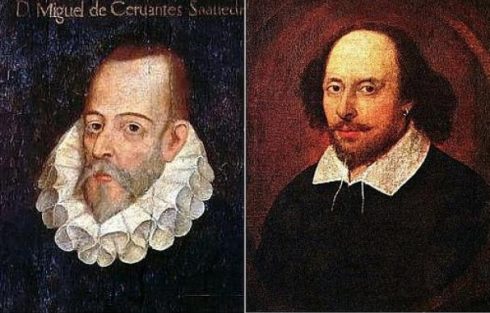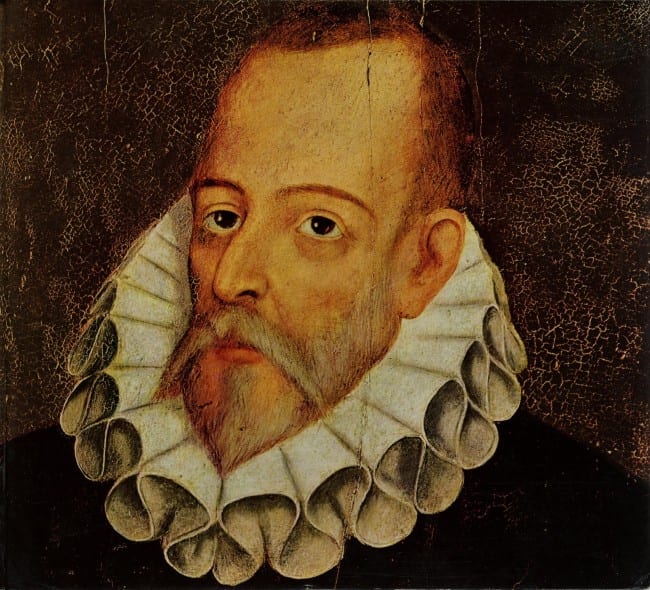EVERYONE knows Don Quijote, the world’s most famous novel. Most can even name its author – Miguel de Cervantes. But did you know that September 19 marked a pivotal moment in his life?
There’s still much we don’t know about Cervantes.
Born into a debt-ridden family in Alcala de Henares, near Madrid, much of his life was spent in poverty and on the wrong side of the law. Though he spent time in Sevilla and Cordoba, much of his early work has been lost to history.
Through Don Quijote and other writings, Cervantes gave the world the picaresque novel – a genre that continues to influence storytelling today.
The picaro is an innocent figure, constantly caught up in one misadventure after another, yet never losing his cheerful disposition, no matter how hard fate seems to work against him. In many ways, Cervantes’ own life was like a picaresque tale.
In September 1569, at the age of 22, Cervantes found himself in Madrid. After a duel left a man wounded, an arrest warrant was issued for him. Instead of facing years in jail, Cervantes chose to flee Spain, turning up in Rome shortly after.
At that time, Europe was on the brink of war. The Ottoman Empire had conquered much of Eastern Europe and was threatening Venice and Vienna. In one of the most famous naval battles in history – the Battle of Lepanto – Christian forces triumphed, and Western civilisation was preserved. Cervantes, eager to fight for his faith, enlisted in the Venetian navy and participated in the battle.
He was badly wounded, and his left arm was rendered useless. Nicknamed “El Manco” (the one-armed), Cervantes spent six months in a Sicilian hospital recovering, only to face yet more misfortune.
In 1574, Cervantes was captured by pirates while sailing from Naples to Barcelona and sold into slavery in what is now Algeria. For five long years, he remained a captive. But on September 19, 1580, at the age of 33, a Christian charity paid his ransom and set him free. Though penniless, Cervantes remained unbowed, ready to dive into more adventures.
Returning to Spain, he found himself in Toledo, where he married a much younger woman and fathered an illegitimate daughter. But his personal life was messy – his wife was soon to die, and Cervantes persuaded his sister to raise his child for him.
In the 1590s, Cervantes was back in Sevilla working as a supplier for the Spanish navy. When funds mysteriously went missing, he ended up in prison. By this time, William Shakespeare was beginning to rise to fame in England, but Cervantes, 17 years older, was still wrestling with debts and misfortune.

A plaque in Sevilla’s Calle Sierpes marks the spot where Cervantes was likely held in custody for debt. In his 40s, Cervantes landed a job as a tax collector – hardly a dream role, but one that kept him on the move and out of creditors’ reach. He claimed to have visited every town in Spain, and in many places, locals proudly mark where Cervantes once stayed with the motto, “Cervantes slept here.”
The job also gave him precious time to write. He churned out plays, poems, and novels, but it was Don Quijote that truly made his name. The book was so successful that multiple bootleg versions began to surface, forcing Cervantes to write a second part to protect his masterpiece – and his royalties.
By 1616, Cervantes was nearing the end of his life. At nearly 70, he had no idea that his great rival, Shakespeare, had also reached the final stages of his own life.
READ MORE:
- LIFE IN SPAIN: Timeless wisdom with a Spanish twist -10 everyday proverbs to know
- Little-Known Cordoba: Michael Coy takes you on a tour of the Andalucian city to discover hidden corners
- LIFE IN SPAIN: Meet Lola Flores, the country’s most iconic actress, writes Michael Coy
In a strange twist of fate, both men died within days of each other – Cervantes on April 22, 1616 and Shakespeare on April 23.
Cervantes may have died in relative obscurity, but his legacy as the creator of Don Quijote and as one of Spain’s most celebrated writers lives on. His life, filled with scrapes, escapes, and relentless optimism, truly reads like a picaresque adventure.
Click here to read more Spain News from The Olive Press.








